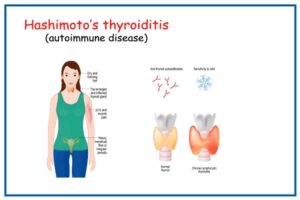If you often feel tired, you are not alone. Research shows that up to 45% of individuals, including both healthy and diseased individuals of all ages, report experiencing fatigue.
In this post, we will define fatigue and explain how you can improve low energy levels.
What is fatigue?
Fatigue is a general symptom that involves a feeling of exhaustion, lethargy, or low energy. It is also experienced as depletion of mental or physical resources, decreased work capacity, and a lowered response to stimuli.
Acute fatigue
Acute or short-term fatigue is temporary tiredness, such as during or after exercise or following a lack of sleep. The prevalence of fatigue in healthy individuals ranges from 7% to 45%
Chronic fatigue
Chronic fatigue is long-term fatigue characterized by experiencing tiredness for six months or longer. Approximately 2%-11% of individuals in the general population experience chronic fatigue.
Chronic fatigue syndrome
Chronic fatigue syndrome is a condition marked by extreme fatigue lasting six months or more. CFS also includes experiencing at least four of eight chronic fatigue syndrome symptoms, such as headaches, joint pain, muscle pain, unrefreshing sleep, etc. There are no tests that can identify CFS and it is instead diagnosed by differential diagnosis, meaning that other health conditions and causes of fatigue must be ruled out before a CFS diagnosis is made.
Fatigue causes
Fatigue causes and risk factors that are associated with both general and chronic fatigue syndrome include:
• Being female (women have an increased risk of CFS)
• Nutrient deficiencies
• Use of certain medications (e.g. sedatives, analgesics)
• Dysbiosis (gut imbalances)
• Sleep loss
• Alcohol consumption
Fatigue can also occur as a symptom of many health conditions, such as
• Anemia
• Depression
• Hypothyroidism
• Fibromyalgia
• Inflammatory conditions (e.g. Inflammatory bowel disease, multiple sclerosis, arthritis)
• Insomnia
Research suggests that fatigue can also occur because of irregularities in certain processes, such as nervous system dysfunction, immune system activation, or hypothalamic-pituitary-adrenal (HPA) axis dysfunction.
Fatigue symptoms
Fatigue symptoms include both physical and cognitive symptoms:
• Lethargy and lack of motivation
• Decline in physical capacity following exercise
• Decline in speed in power in physical performance
• Decreased cognitive function (e.g. lack of concentration, accuracy in completing tasks, reaction time)
Tips to improve fatigue
1. Choose nutrient-rich anti-inflammatory foods
A diet rich in anti-inflammatory polyphenol-rich vegetables, optimal amounts of protein, and omega-3 fatty acids are associated with improvement of disease-related fatigue symptoms.
For tips on the best foods to boost your energy levels, join our group here….
2. Minimize caffeine intake
Caffeine is commonly used to increase alertness and fight fatigue. However, caffeine intake has also been associated with irregular levels of melatonin at night, resulting in impaired sleep and daytime sleepiness.
Avoid caffeine at least six hours before your bedtime and be aware that higher doses, even earlier in the day, may interfere with sleep.
Keep in mind that caffeine is found in various beverages and foods, including :
• Energy drinks
• Non-herbal teas
• Soda
• Chocolate
• Coffee
3. Don’t wind down with alcohol
Alcohol intake negatively impacts sleep quality, resulting in fatigue. Alcohol is a sedative, but it can increase wakefulness in the second half of the night, and the effects might last longer. Further, a hangover from alcohol consumption causes increased fatigue and anxiety as well as decreased alertness the following day. Replace your nightcap with non-alcoholic herbal tea and seek support for alcohol cessation if required.
4. Get active
When you’re fatigued, you may not feel like exercising, but research shows that aerobic exercise has beneficial effects on energy levels. If you lead a sedentary life, you can gradually introduce exercise into your routine by starting with low-intensity activities like walking, cycling, or swimming.
5. Respect your personal limits
Individuals should respect their personal limits for physical and mental activity. Finding this personal balance will require some trial and error as each person will have different limitations for everyday activities, work or education, as well as social engagement. These limitations may be based on the level of fatigue, the severity of any other symptoms you experience, or cognitive function limitations. Only you can decide where these limits are, and what you will base them on.
6. Improve Sleep
A variety of lifestyle behaviors, commonly referred to as sleep hygiene habits, can help you get a better night’s sleep and feel more energized. These recommendations include reducing light and noise in your sleep environment and maintaining a regular sleep schedule.
For the full list of tips for sleep go here …..
7. Practice mindfulness or other stress-reducing techniques.
Engaging in counseling, stress management, mindfulness training, and physical exercise has shown significant improvements in fatigue and physical functioning. You can explore various activities with a mindfulness component such as meditation, yoga, and body scanning.
The bottom line
If you experience tiredness, take some time and consider which fatigue causes may be a contributing factor for you. Try the tips in this post to help improve your energy levels. If you still struggle and find fatigue persists, we recommend speaking to your integrative health practitioner for further guidance.



